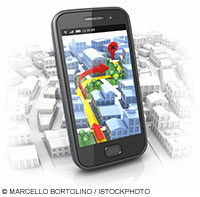The secret life of data in the year 2020

Brian David Johnson, Intel futurist, shows how geotags, sensor outputs, and big data are changing the future. He argues that we need a better understanding of our relationship with the data we produce in order to build the future we want.
“When you look to 2020 and beyond, you can’t escape big data. Big data—extremely large sets of data related to consumer behavior, social network posts, geotagging, sensor outputs, and more—is a big problem. Intel is at the forefront of the big data revolution and all the challenges therein. Our processors are how data gets from one place to another. If anyone should have insight into how to make data do things we want it to do, make it work for the future, it should be Intel.
[…] We will have algorithms talking to algorithms, machines talking to machines, machines talking to algorithms, sensors and cameras gathering data, and computational power crunching through that data, then handing it off to more algorithms and machines. It will be a rich and secret life separate from us and for me incredibly fascinating.
But as we begin to build the Secret Life of Data, we must always remember that data is meaningless all by itself. The 1s and 0s are useless and meaningless on their own. Data is only useful and indeed powerful when it comes into contact with people.
This brings up some interesting questions and fascinating problems to be solved from an engineering standpoint. When we are architecting these algorithms, when we are designing these systems, how do we make sure they have an understanding of what it means to be human? The people writing these algorithms must have an understanding of what people will do with that data. How will it fit into their lives? How will it affect their daily routine? How will it make their lives better?”



